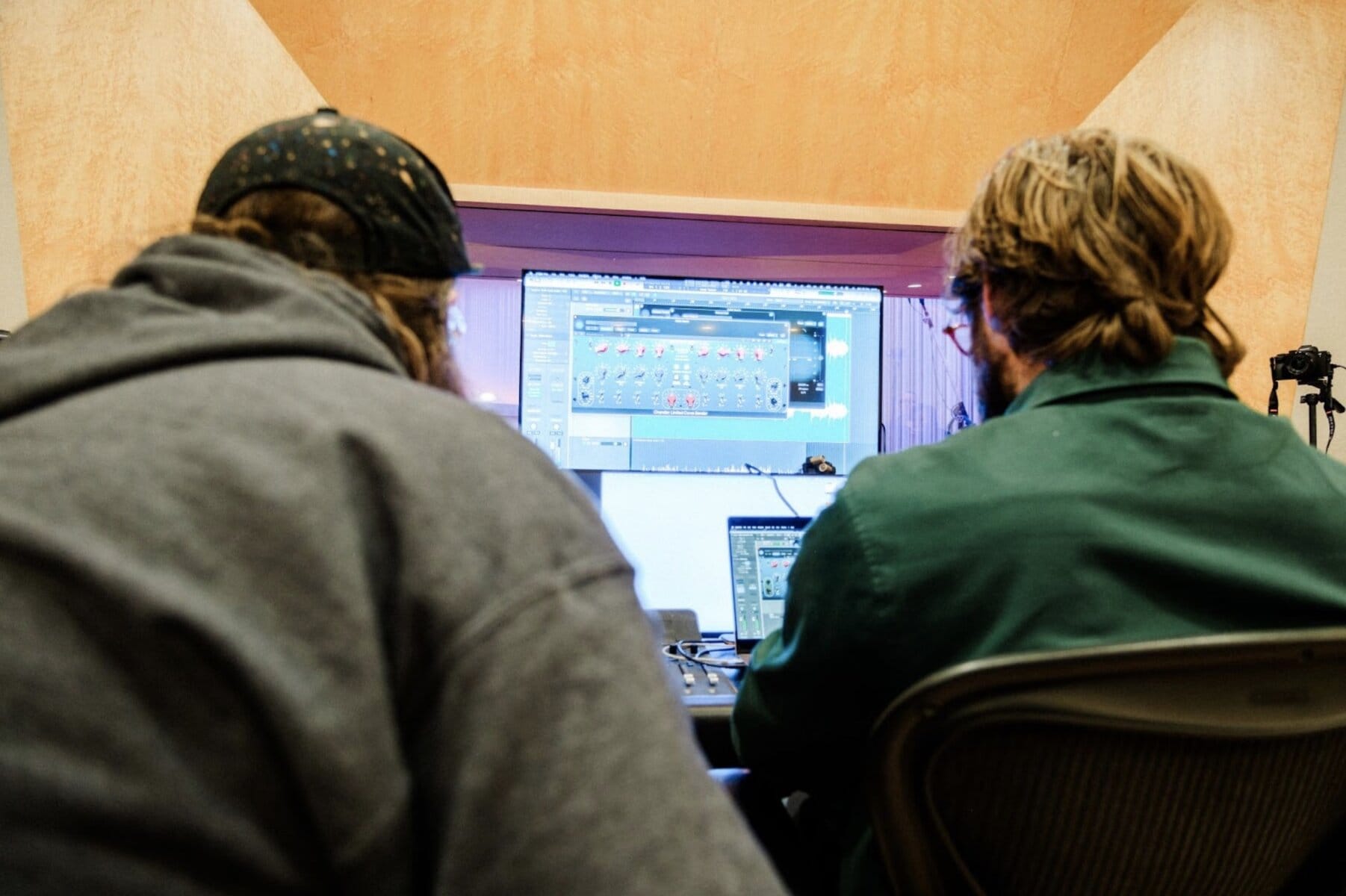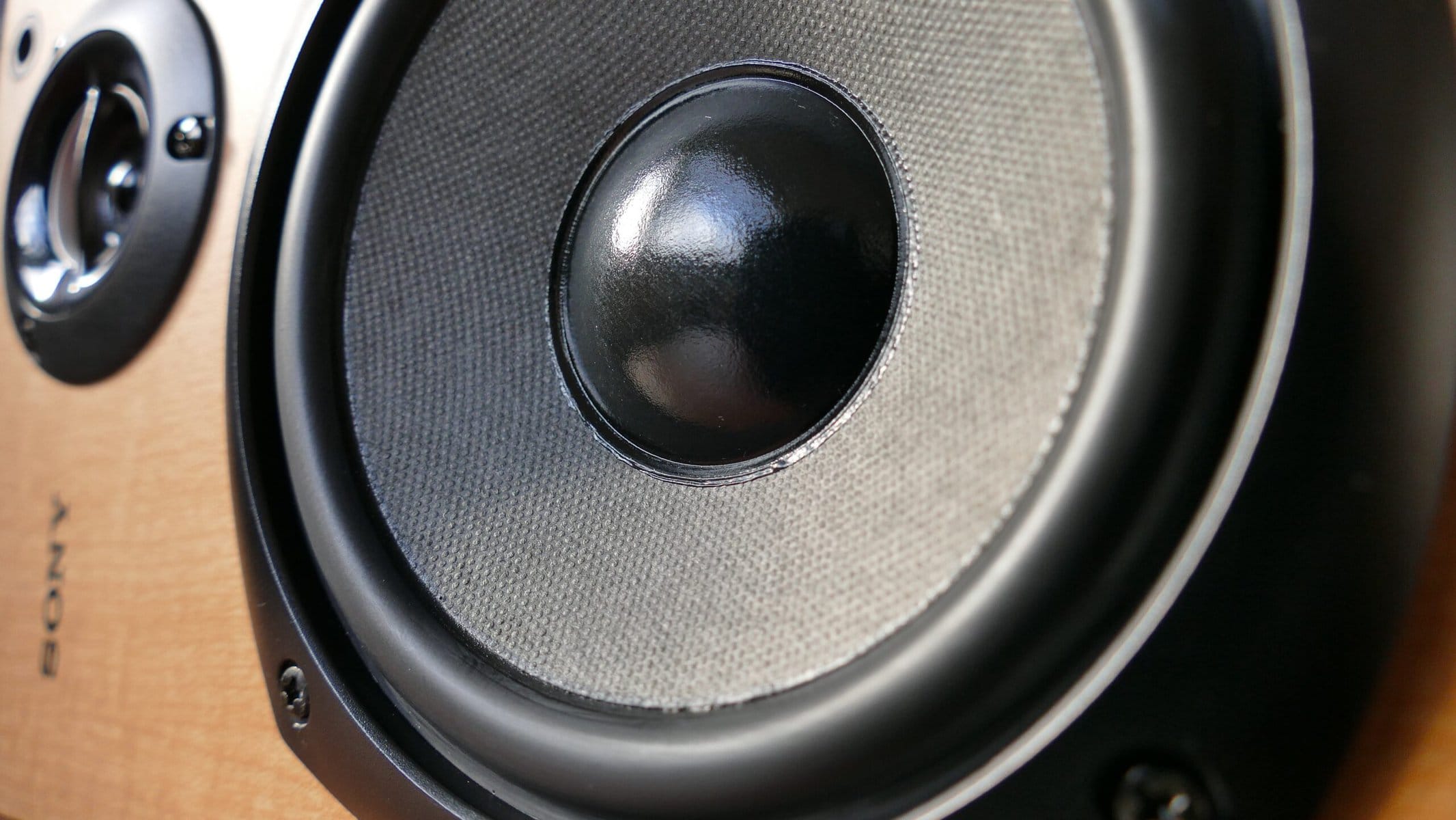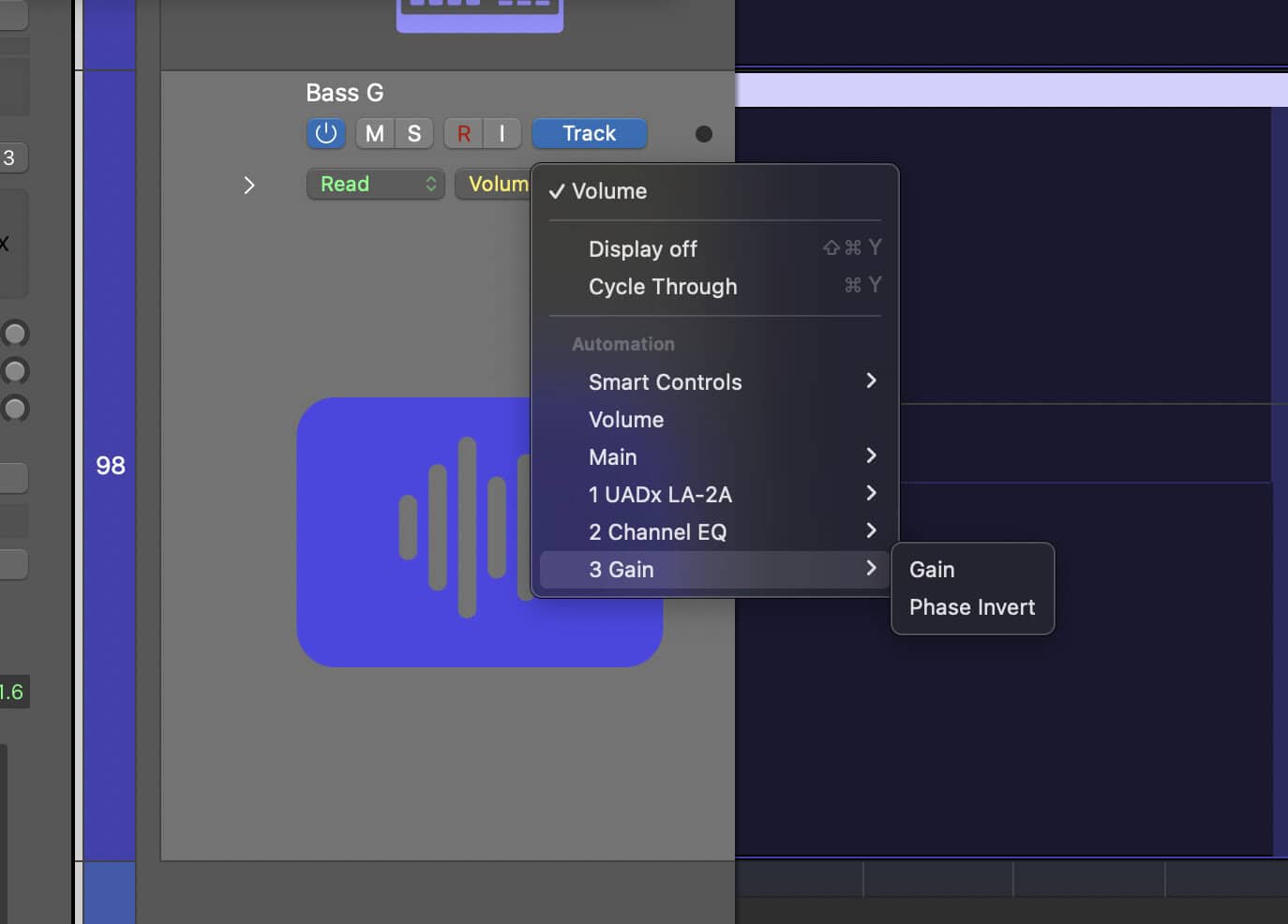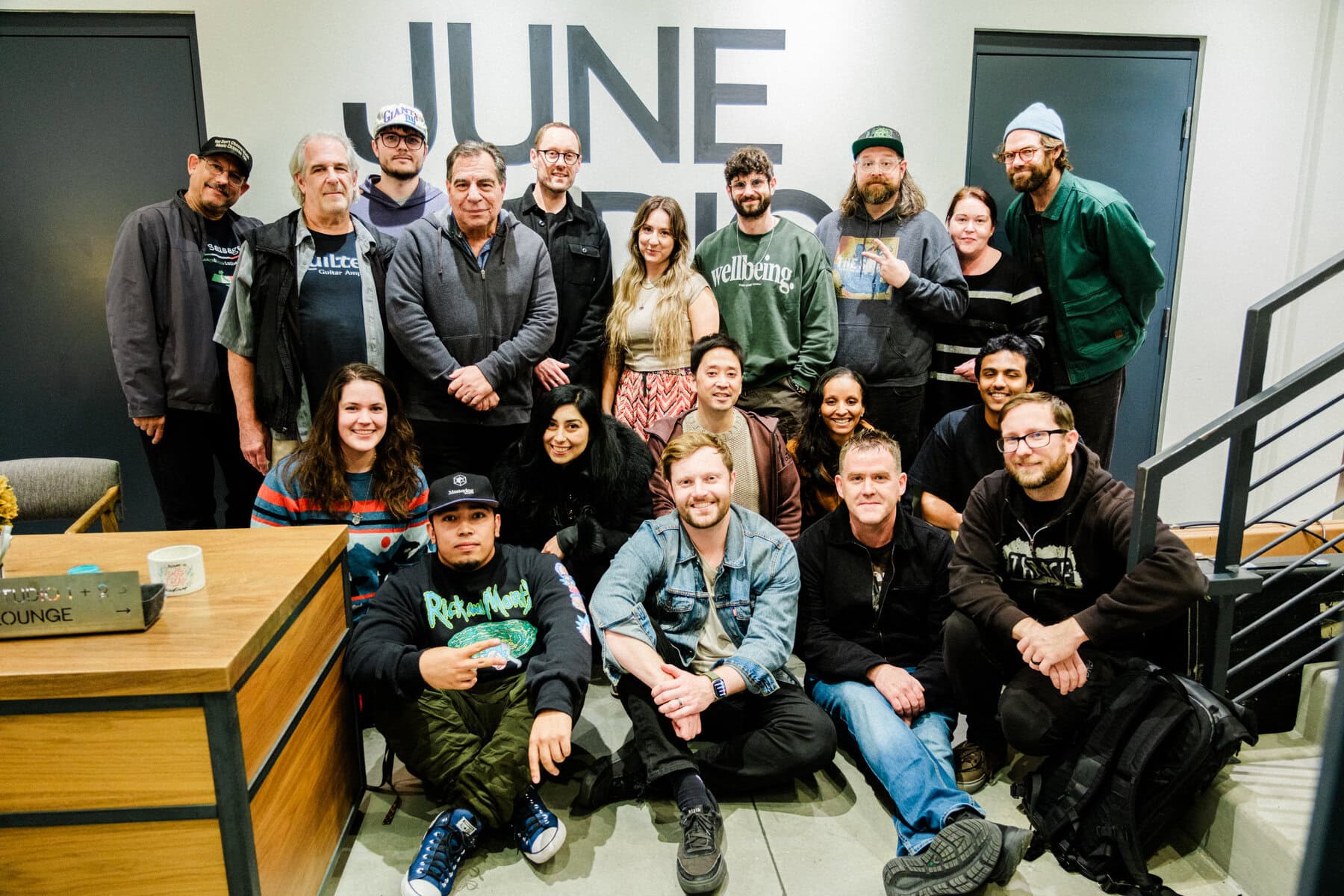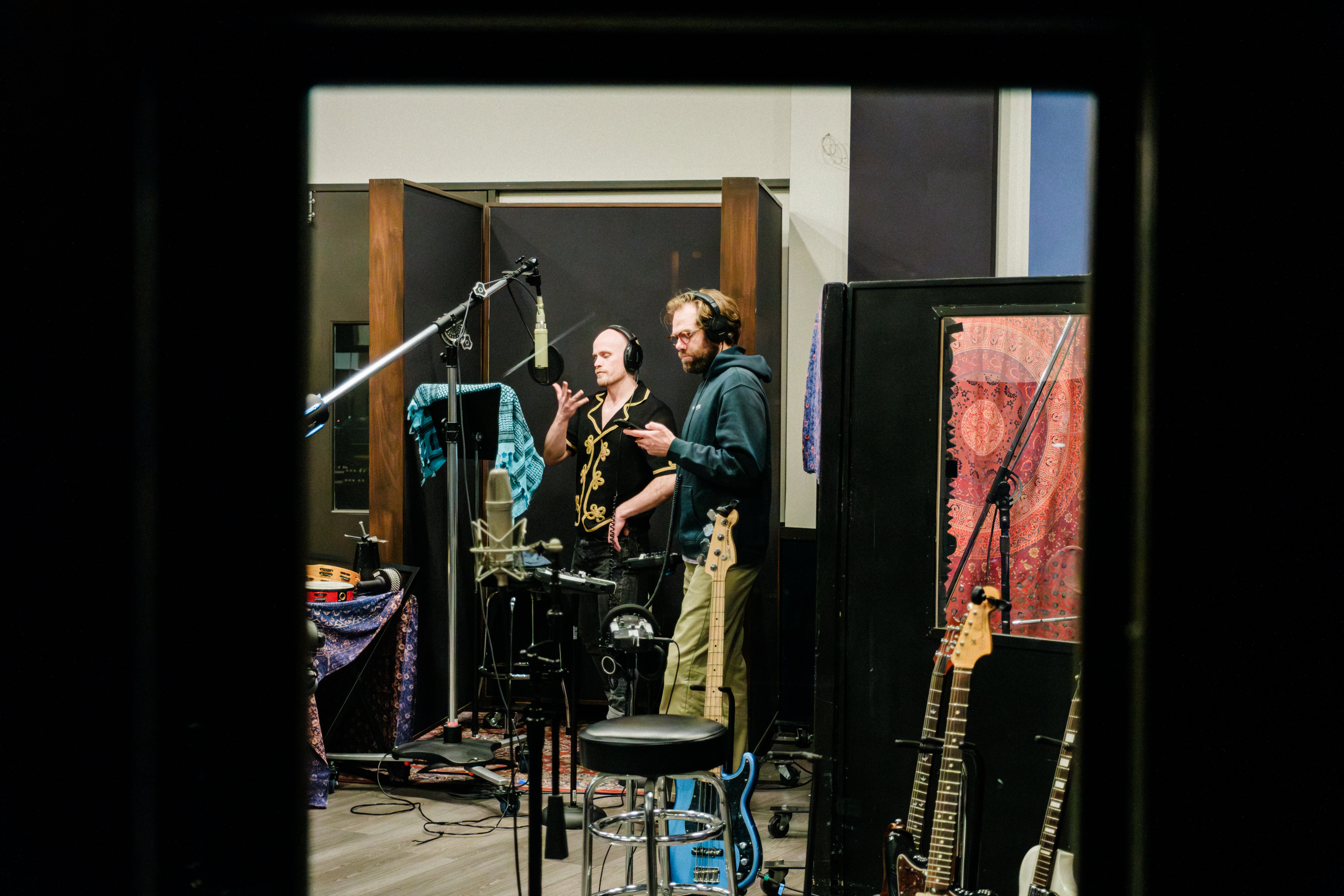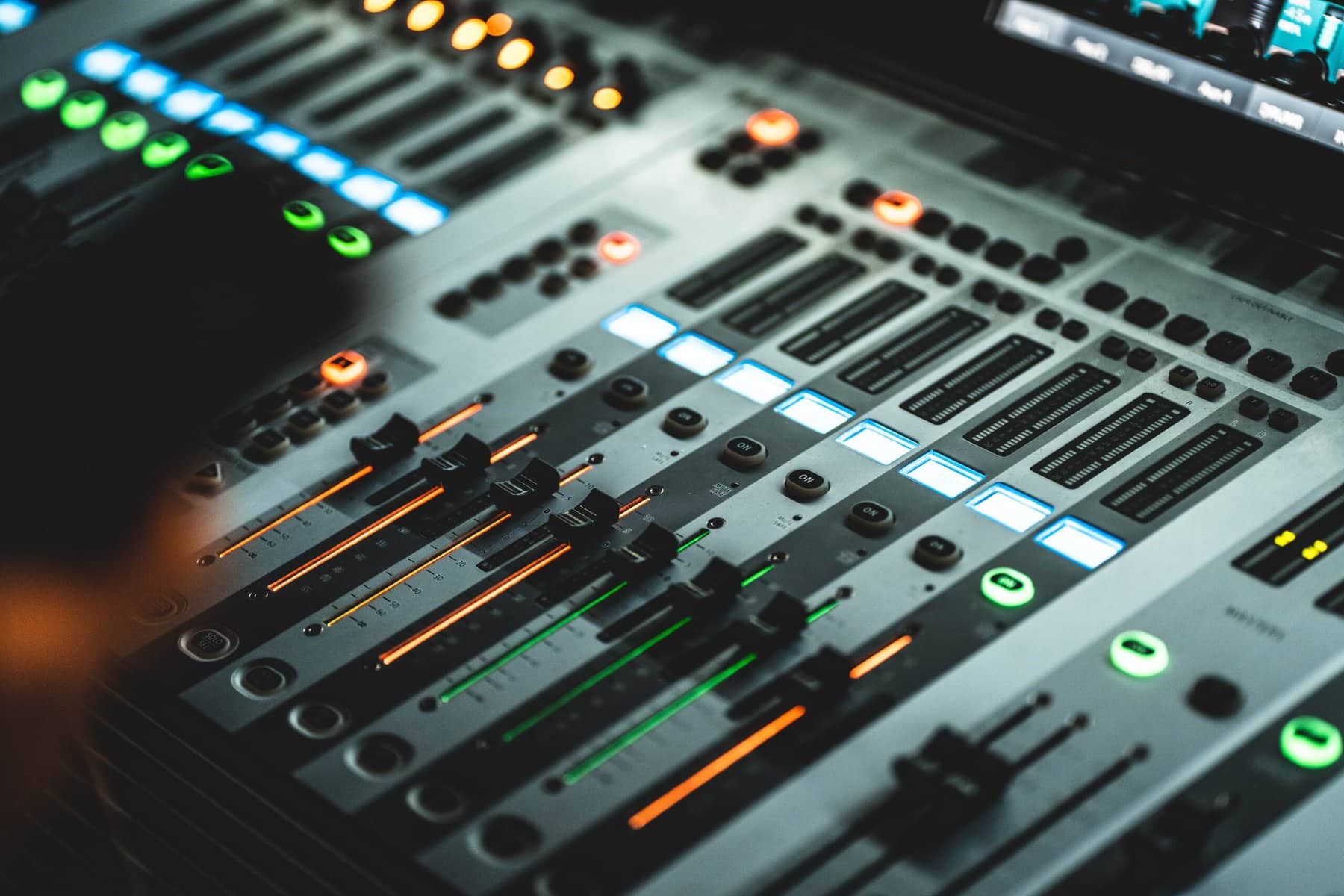Tell me if you’ve ever experienced this…
You record vocals at home and you think they sound great.
But then you listen to a professionally recorded, mixed, and mastered song…
And you realize the quality of your vocal recording just isn’t up to par.
Now, the problem could be a lack of engineering or mixing knowledge. Which may just take more education and practice.
But it could also be the vocal microphone you’re using.
Gear isn’t everything, but a great mic can definitely improve the quality of your sound.
So let’s look at the best vocal microphones on the market.
But if you just want to learn about Vocal Microphones specifically, keep reading.
What to Look for in a Vocal Microphone
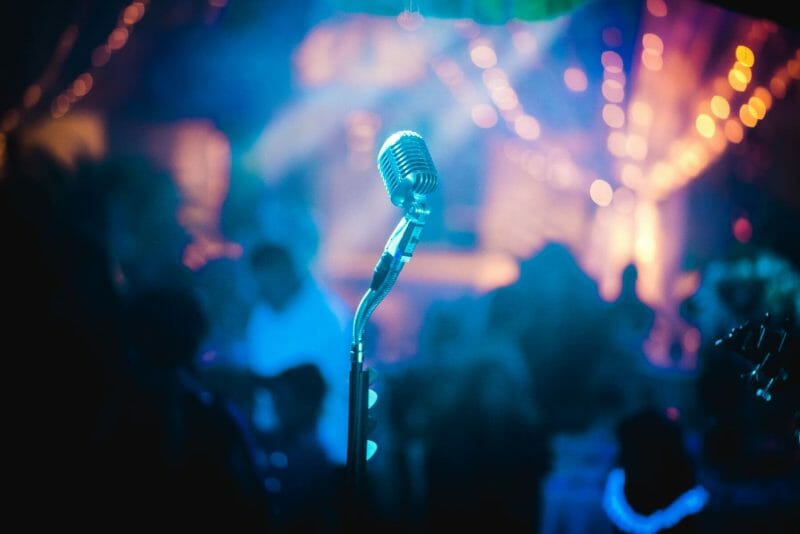
A more expensive microphone doesn’t always mean it’s better. But generally, that’s true.
Also, there are certain mics that work better in the studio and others that work for a live setting.
So let’s go over the elements you need in a vocal mic—for both the studio and the stage.
For the Studio
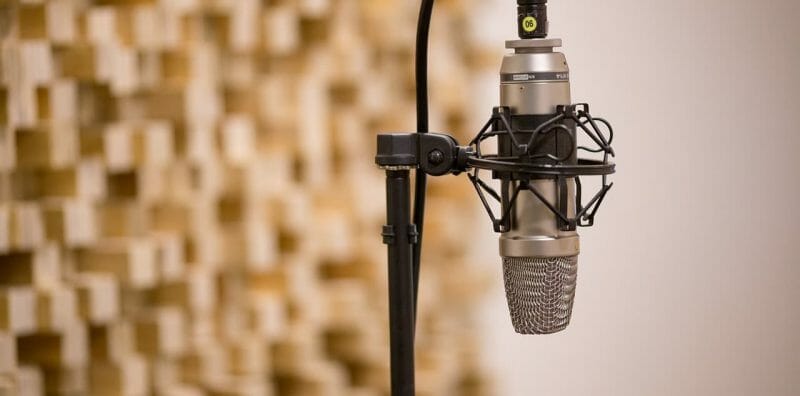
When looking for a studio vocal mic, there are certain characteristics it needs.
The first thing to look for is a condenser microphone.
A condenser mic is sensitive to sound, which means a couple of things:
- It’s very good at capturing subtleties
- It doesn’t usually do well with loud sound sources
Sounds that are too loud can actually damage the electrical parts within a condenser mic. So they’re much more fragile than dynamic mics. (More on those below.)
However, because they’re sensitive, they can capture high-quality sounds. Like the little nuances in a singer’s voice.
The second thing to look for in a studio vocal mic is a cardioid pickup pattern.
A pickup pattern is the area around the mic that’s most sensitive to audio.
And a cardioid pickup pattern records audio that’s focused in the front. For vocals, you want a mic that records audio in the front.
For the Stage
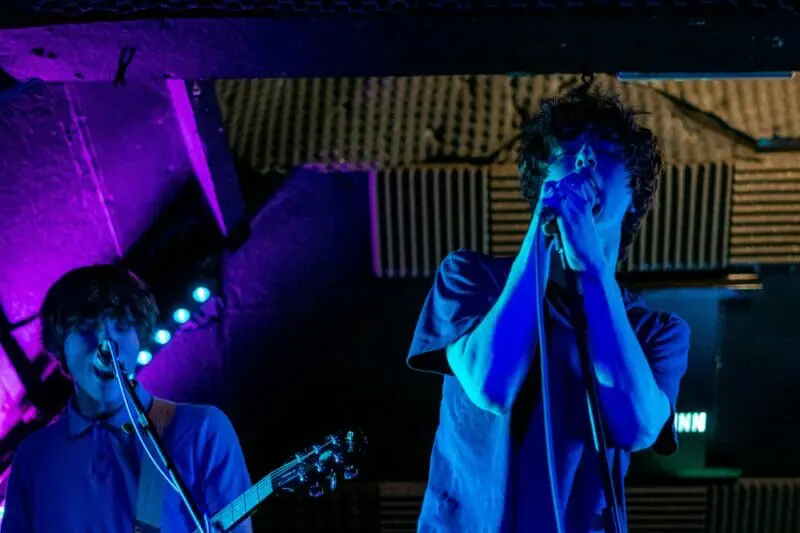
When it comes to performing live, you’ll want a totally different type of mic.
First, your stage vocal mic needs to be dynamic.
Dynamic mics are much more durable than condensers and are not as sensitive. Meaning they can handle high volumes (like loud screams from the lead vocalist).
Most singers put their lips right on the mic. So it has to be able to handle both quiet and loud notes.
The Best Vocal Microphones for the Studio
These are all high-quality condenser microphones. Which means they’ll all need phantom power.
You can definitely use dynamic mics when recording vocals. Especially if you’re working with a loud singer or a more aggressive genre.
But your best bet is to use a condenser mic.
Shure SM7B
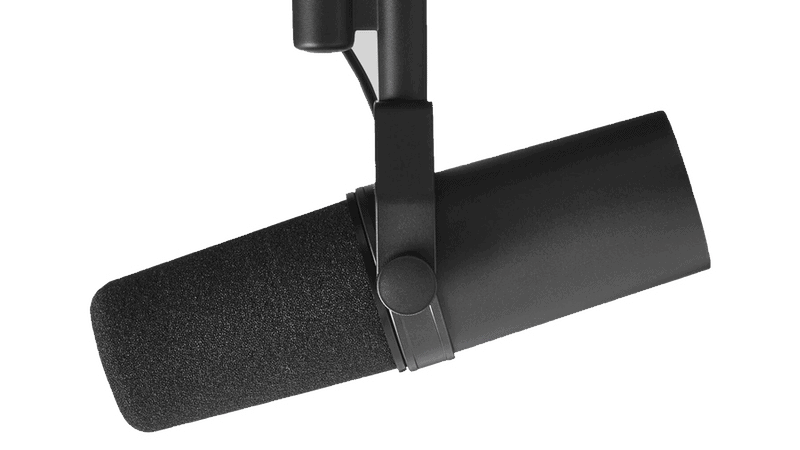
If you want a clear and professional recording, look no further than the Shure SM7B. Watch some in-studio videos from pro musicians and you’ll probably see a lot of this mic.
It has three frequency response options to choose from. Flat, bass roll-off, and presence boost.
Just be aware that it’s best to use this mic in a treated studio because it will pick up everything.
The SM7b needs a lot of gain, so you’ll want a solid preamp. The Cloudlifter CL-1 is a high quality, budget friendly option.
Not only is the sound quality superb on vocals, but it’s more durable than many condenser mics.
AKG C636

The AKG C636 is great for home studios.
It’s unlikely to pick up feedback.
It focuses on what you point it at. Meaning you can get clear vocals even in an untreated studio.
And it delivers a balanced sound—not too tinny, not too bassy.
This is a handheld mic, but in the studio, definitely put this one on a mic stand to avoid handling noise.
Neumann TLM 102
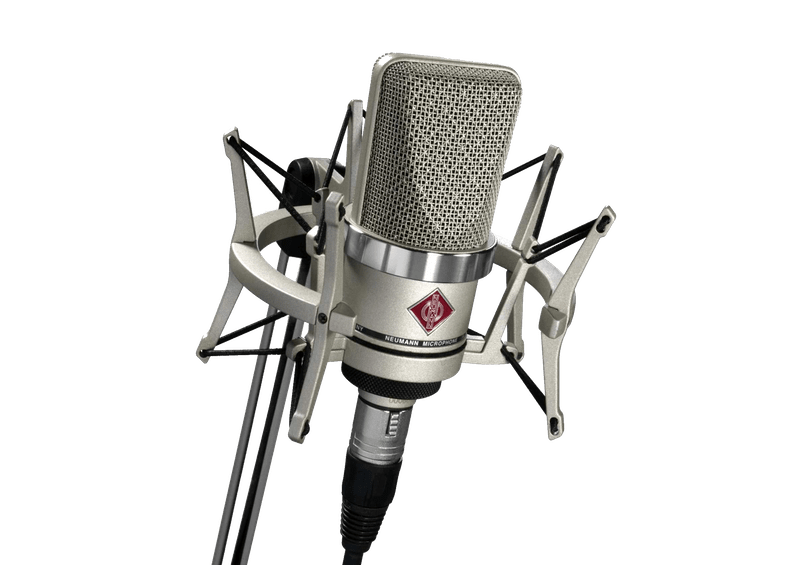
Neumann is well respected in the microphone world because they always aim for super high quality. Because of that, their mics are usually pricier, as is the TLM 102.
The funny thing is this mic is one of their more affordable options. One way they were able to cut the price is by not including any frequency switches.
But overall, it’s a very good vocal mic, and it can even work on other things like acoustic guitar.
Røde NTK
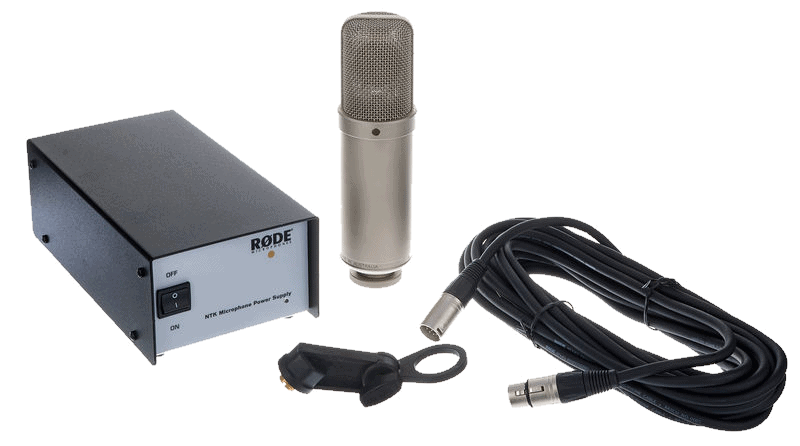
With the Rode NTK, you get a nice, warm, and detailed vocal recording. In fact, engineers have said once you hear yourself speak into it, you know it’s a good mic.
It doesn’t have any frequency switches. Meaning you don’t have as much control over the sound as some other similar mics.
But it’s still a solid option for home producers, especially because it’s affordable.
sE Electronics sE2200a MKII
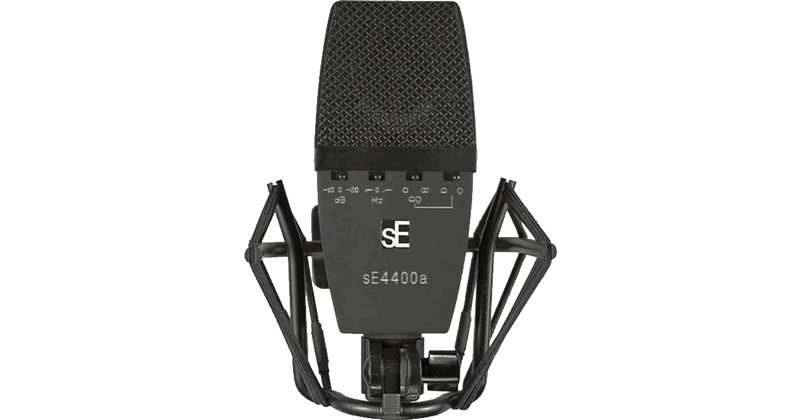
The nifty thing about the sE2200 MkII is that it gives you the option to change pickup patterns. On the mic’s body, there’s a switch that lets you choose between cardioid, omnidirectional, and figure 8.
This is very cool, especially the omnidirectional pickup pattern. With this, you can capture your voice even if you’re moving around.
Just know you’ll need to treat your home studio well if you plan to use the omnidirectional pattern.
The Best Vocal Microphones for the Stage
Now for the best on-stage vocal mics. Both of these mics are dynamic, so they can handle a lot more noise and are very durable.
Shure SM58
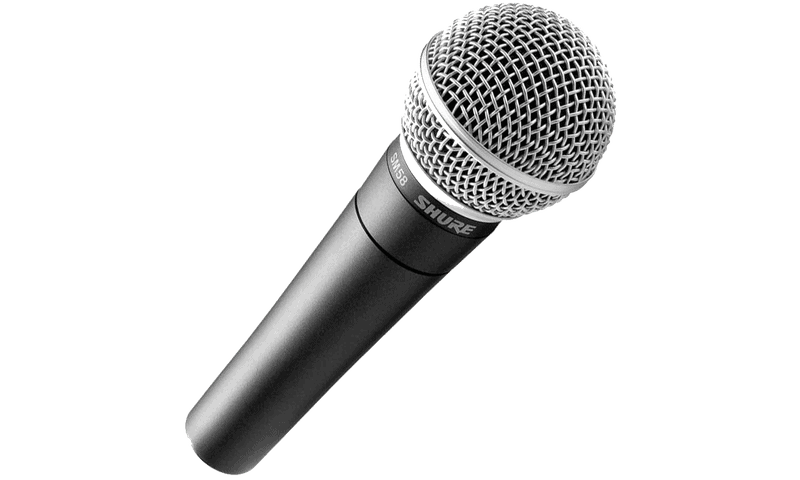
The SM58 is the gold standard for stage mics.
Watch a video of an artist performing on stage. They’re probably using a Shure SM58.
It captures high-quality balanced audio, especially on vocals. Even if you’re screaming into the mic, it will sound good. And it’s very durable.
Plus, it’s only about $100.
Sontronics Solo
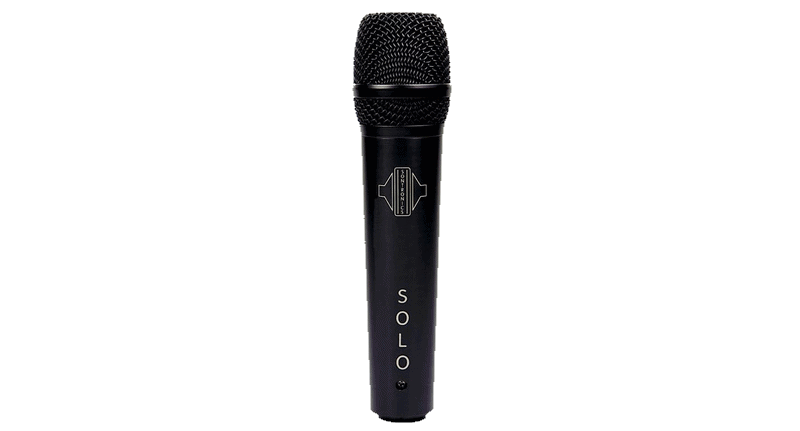
People often compare the Sontronics Solo to the SM58—some say it’s even better.
It does deliver full, balanced, and clear vocals. And loud noises still sound good going through it.
The big difference is it has a super-cardioid pickup pattern. Which is narrower than a regular cardioid pattern.
This means there’s less noise picked up from the sides and it focuses on your voice a little better.
However, it does have noticeable handling noise, more than the SM58. It’s also a little more expensive than the SM58.
Still, the Solo is a great stage mic that can stand on its own.
Final Verdict
Here’s what I say…
If you’ll be recording vocals at home, go with the SM7B. If you’ll be singing in a live setting, use the SM58.
But everyone’s situation is different, so use this guide to find the one that’s right for you!





